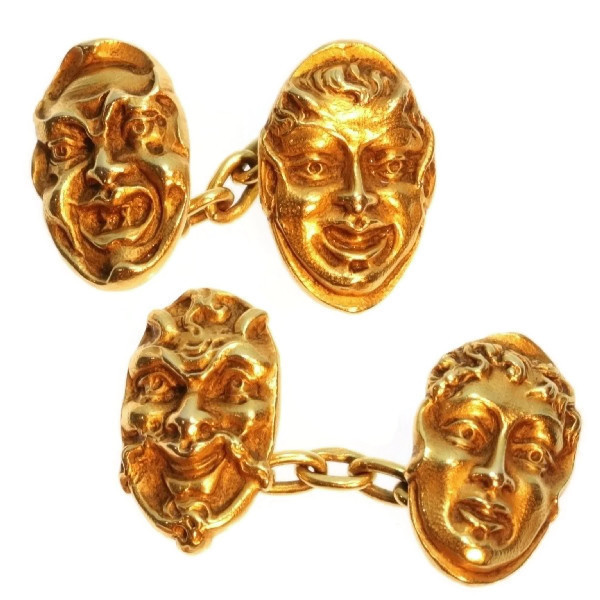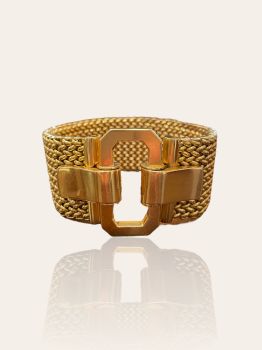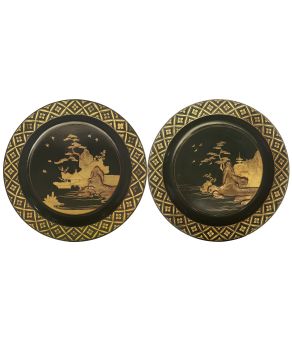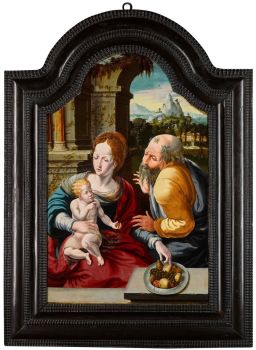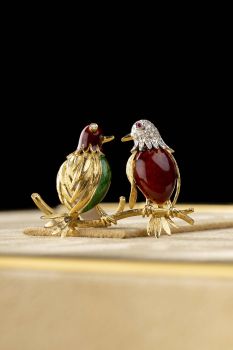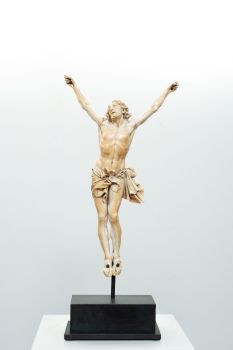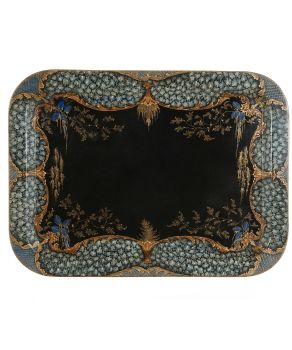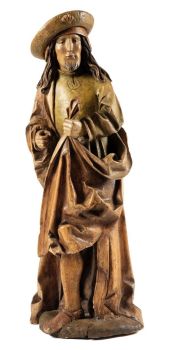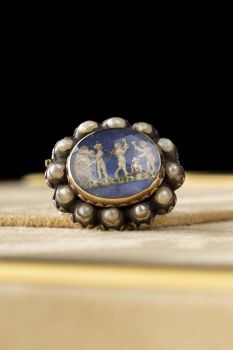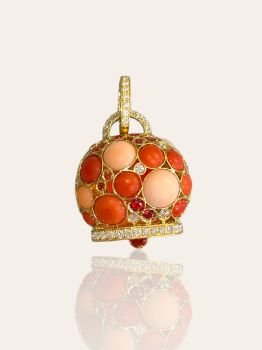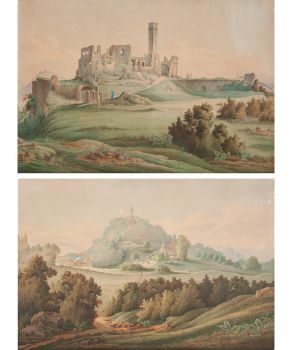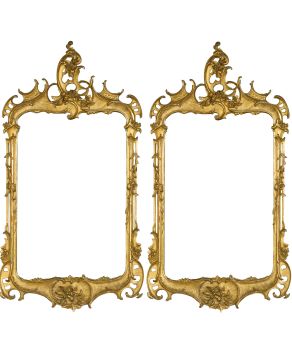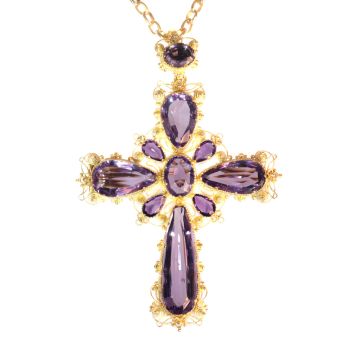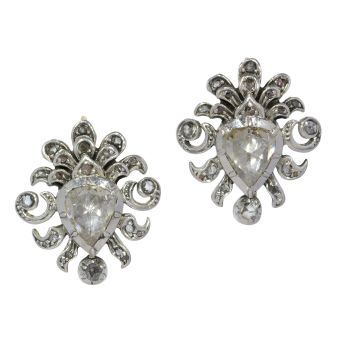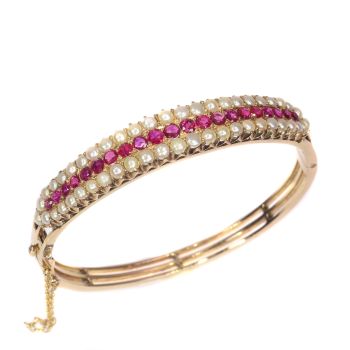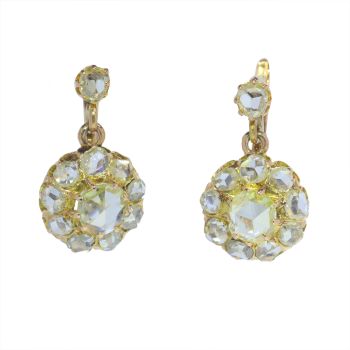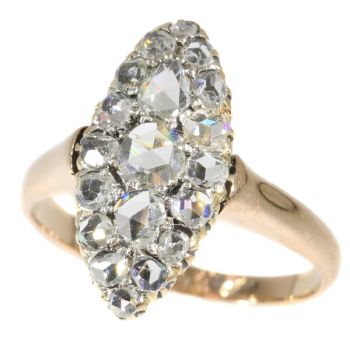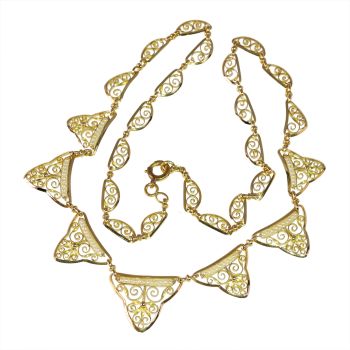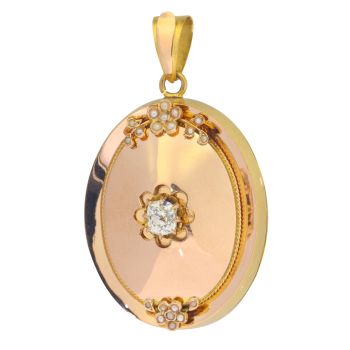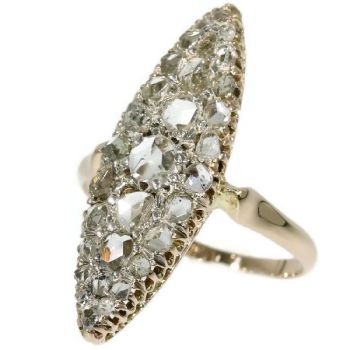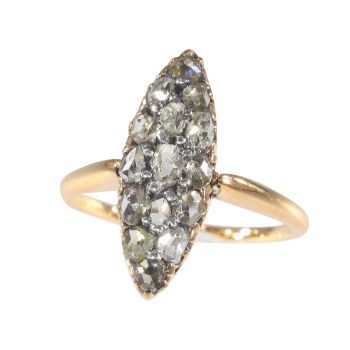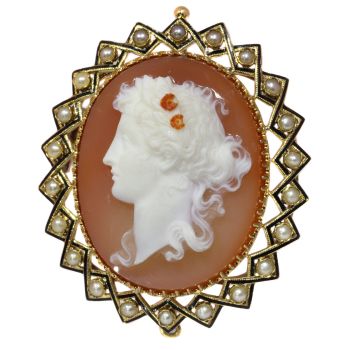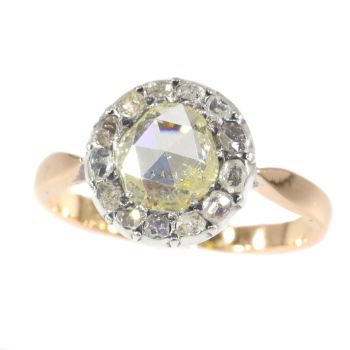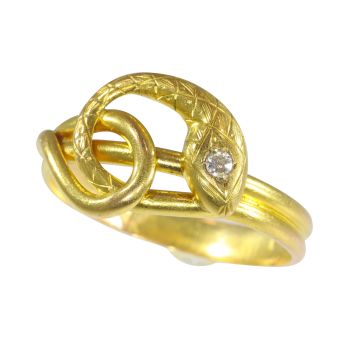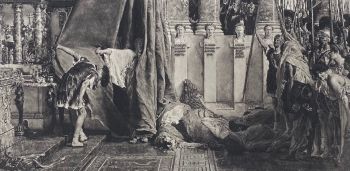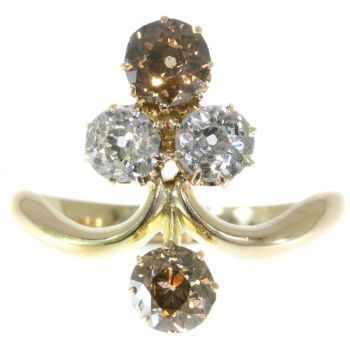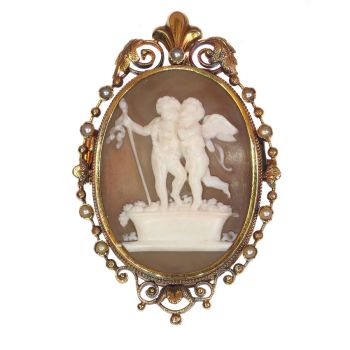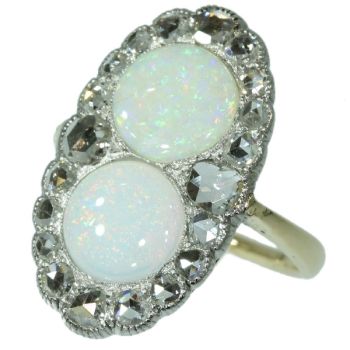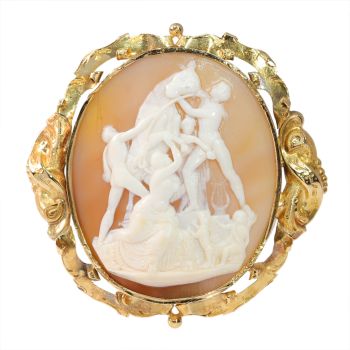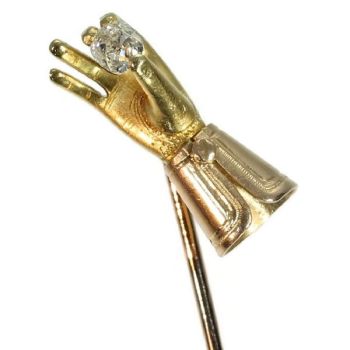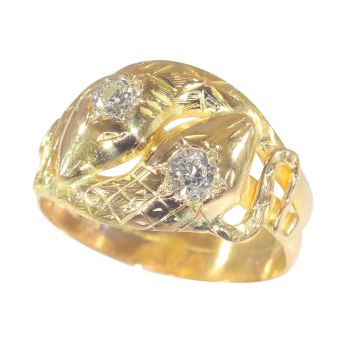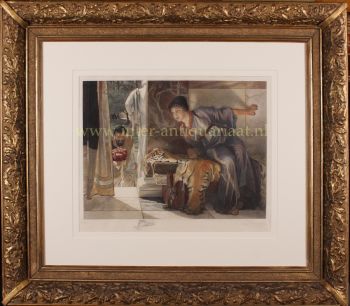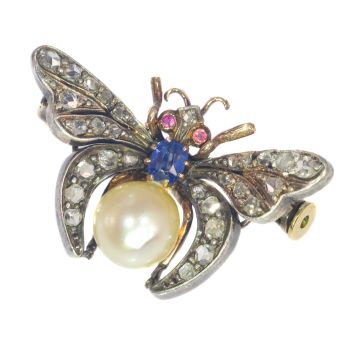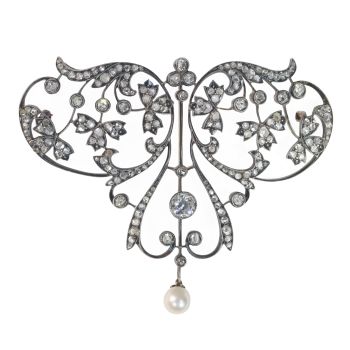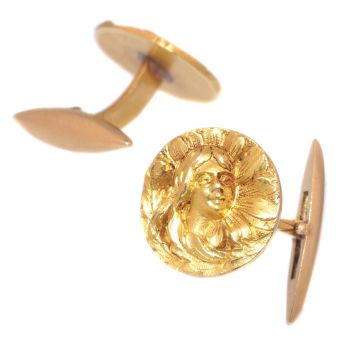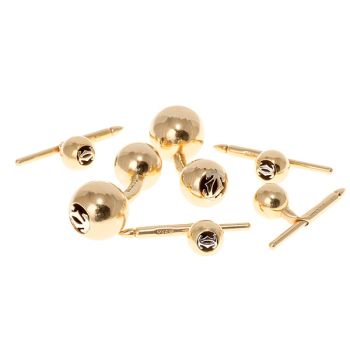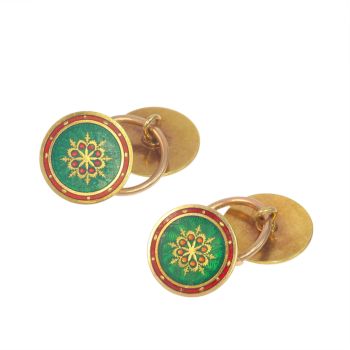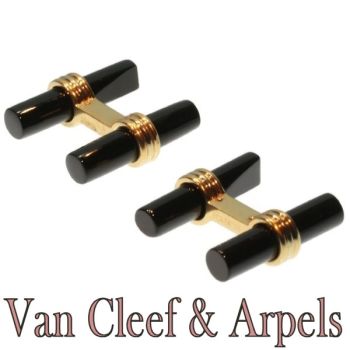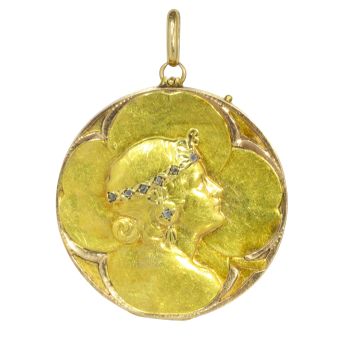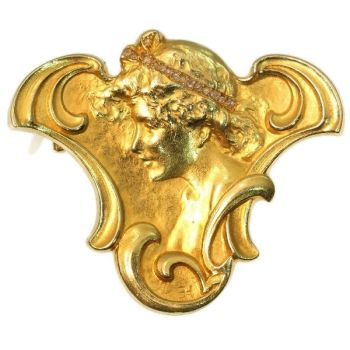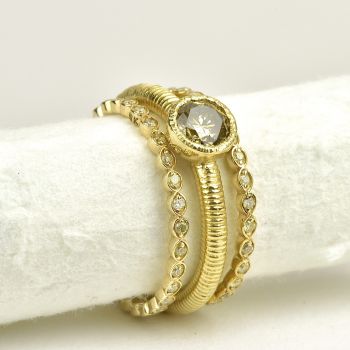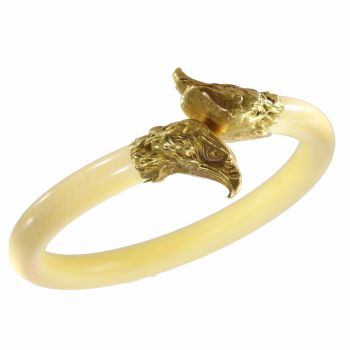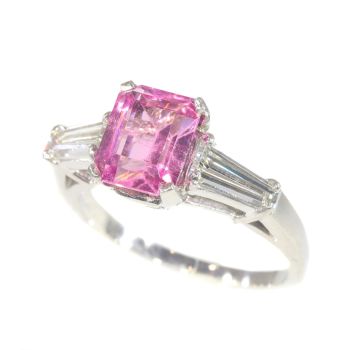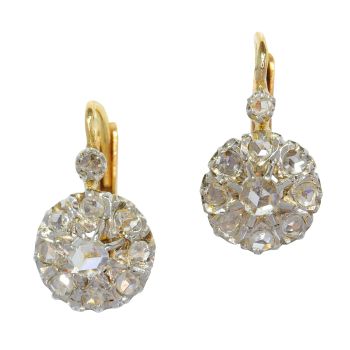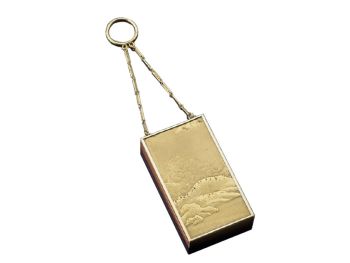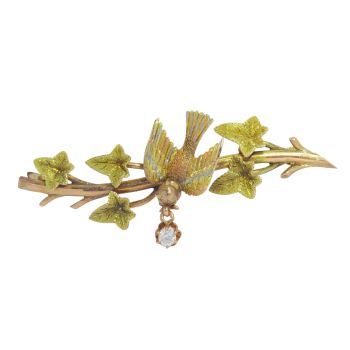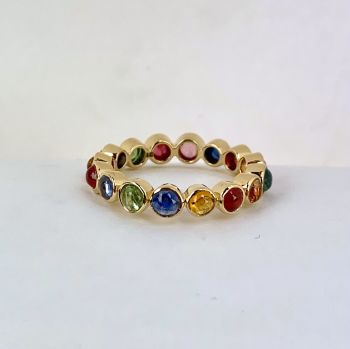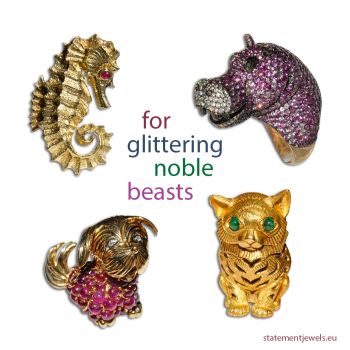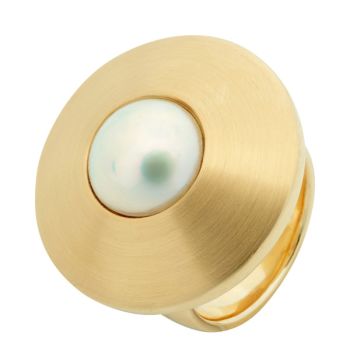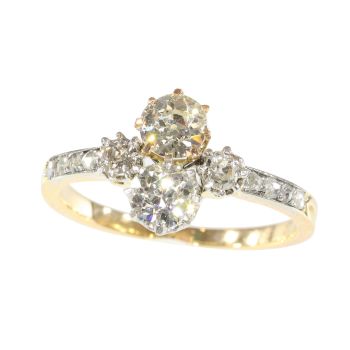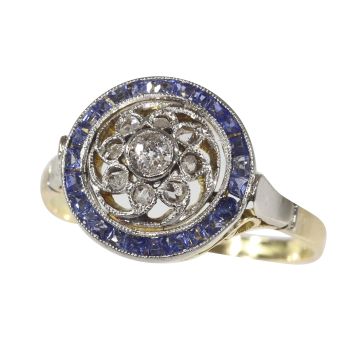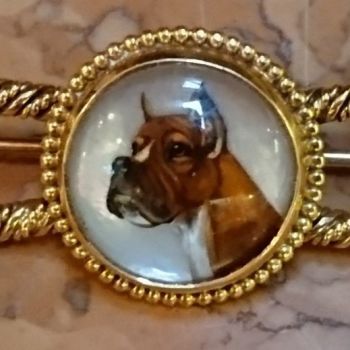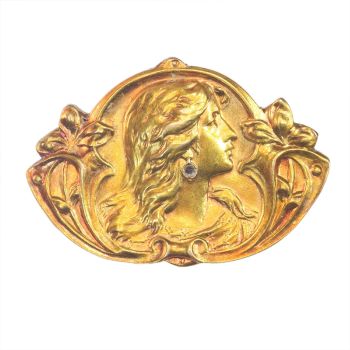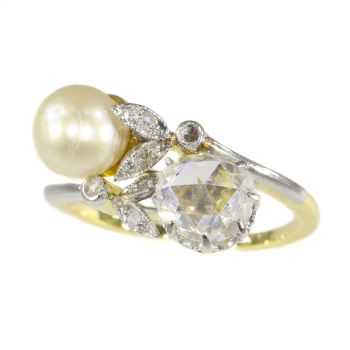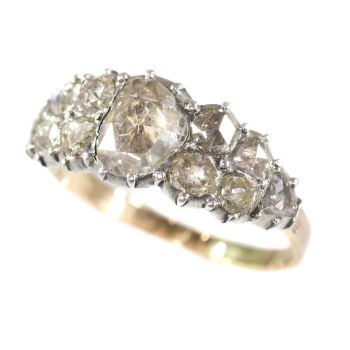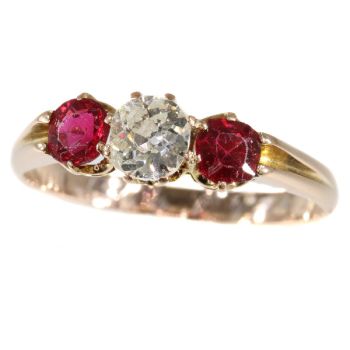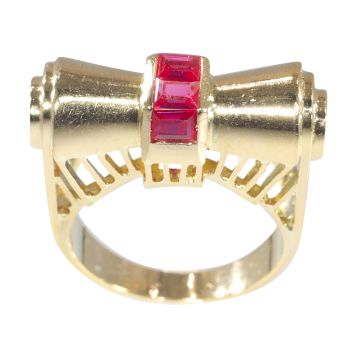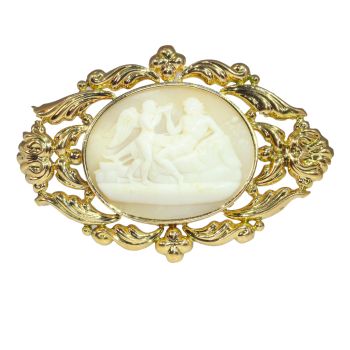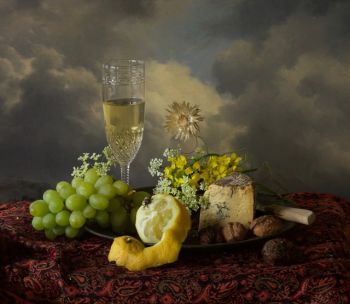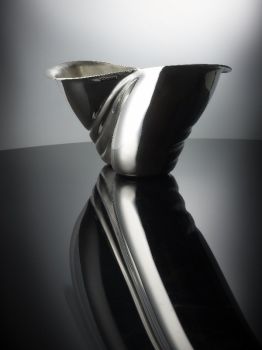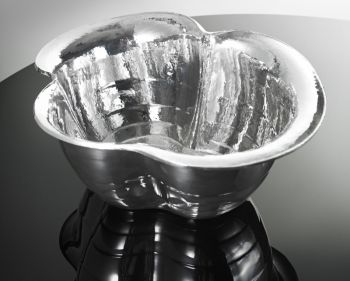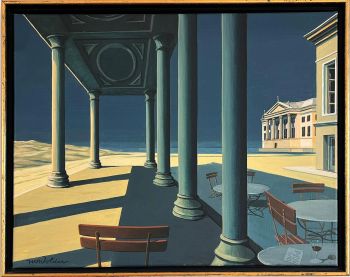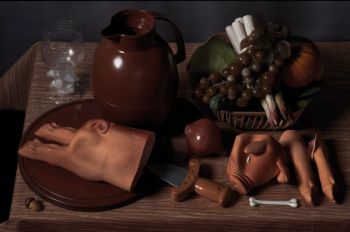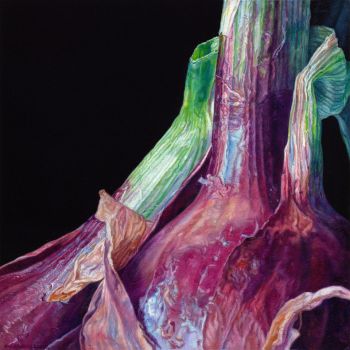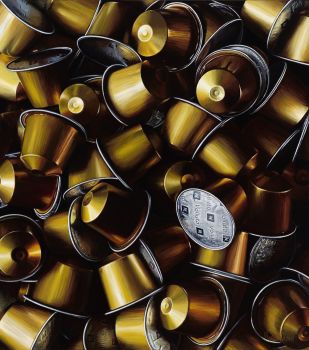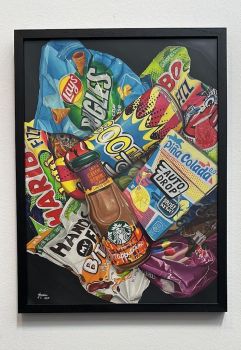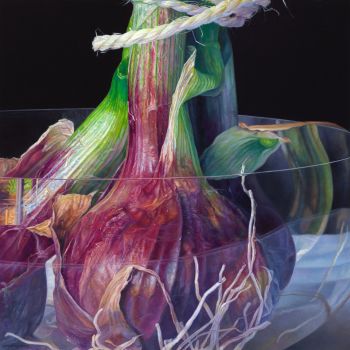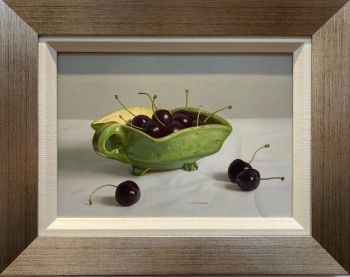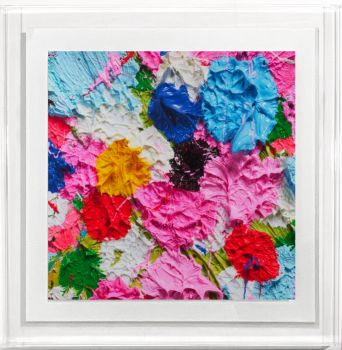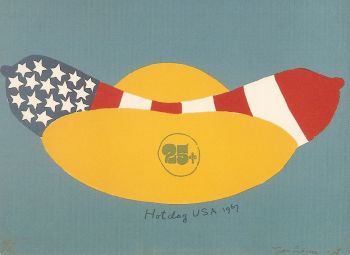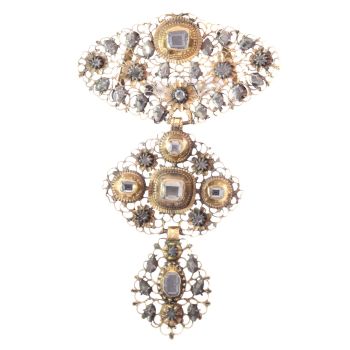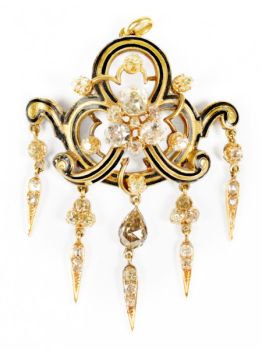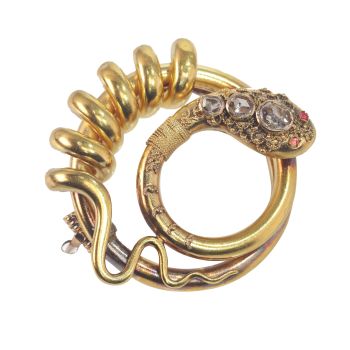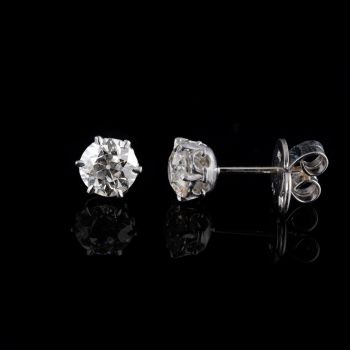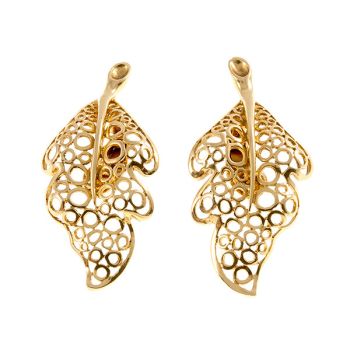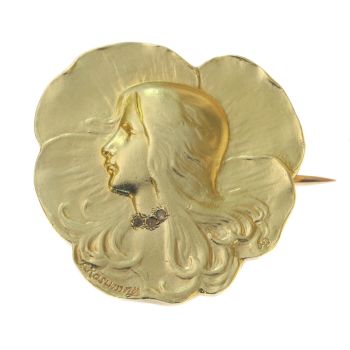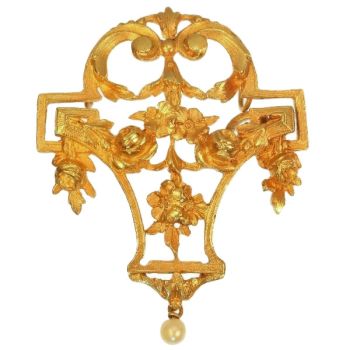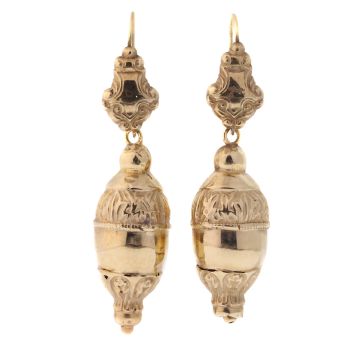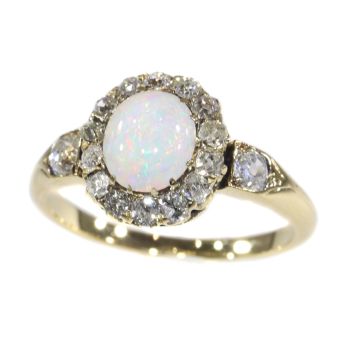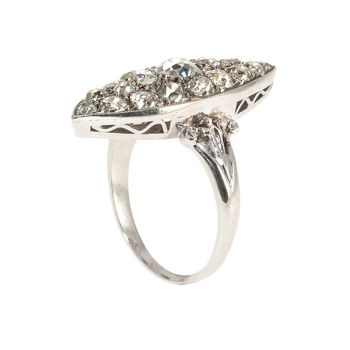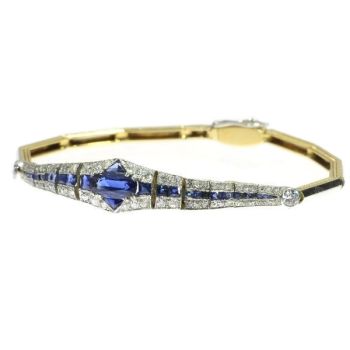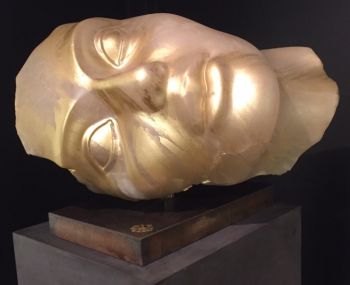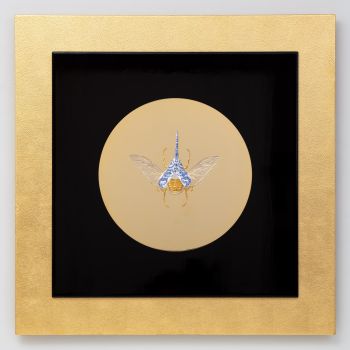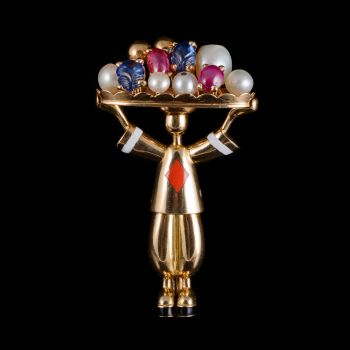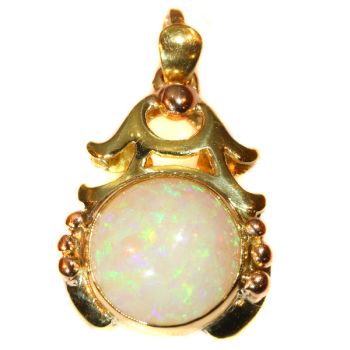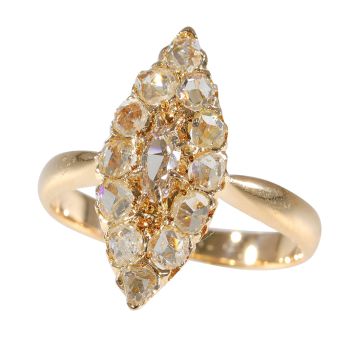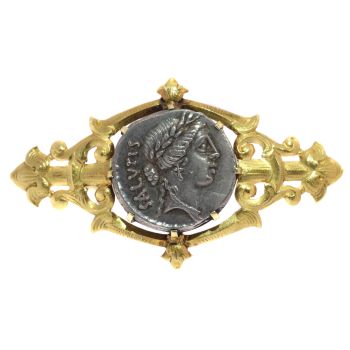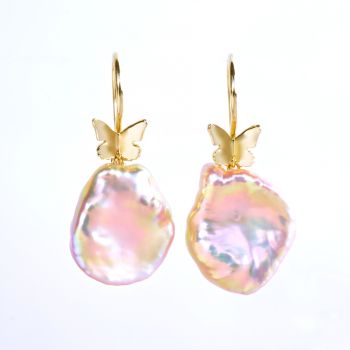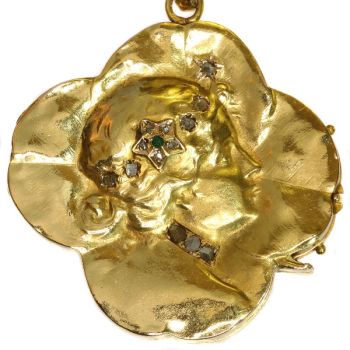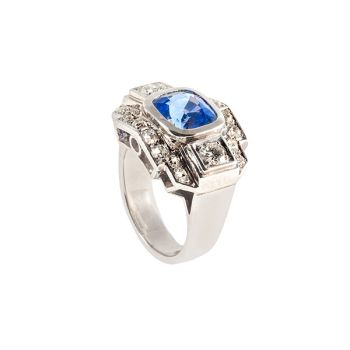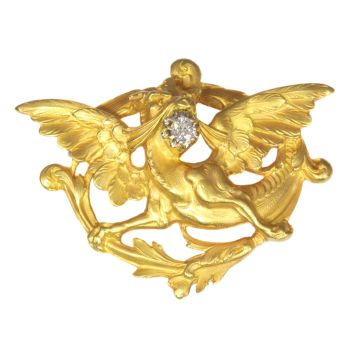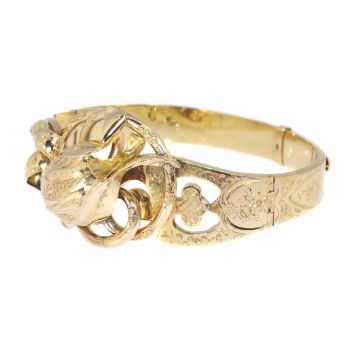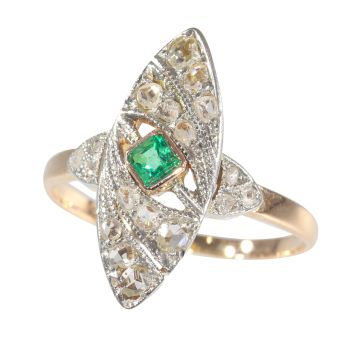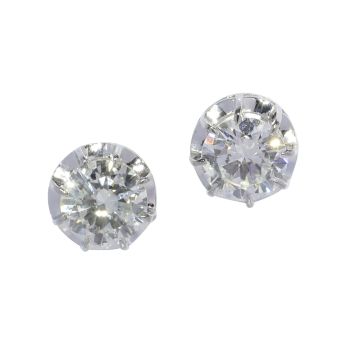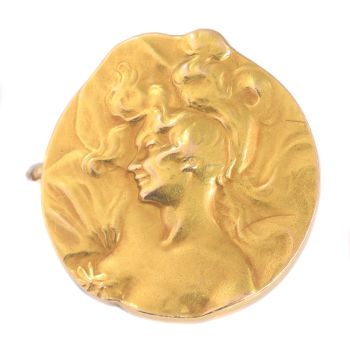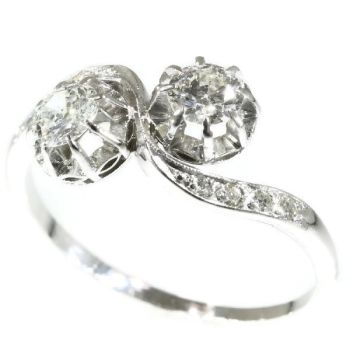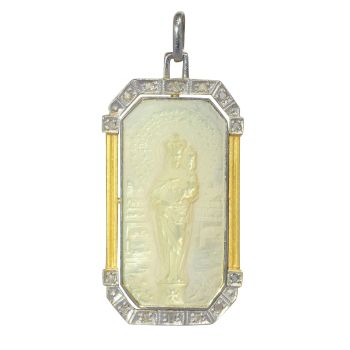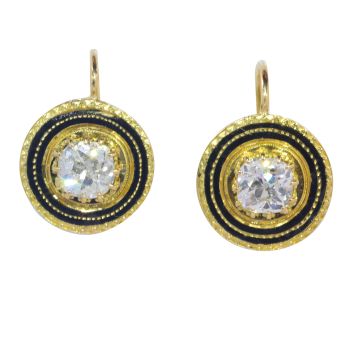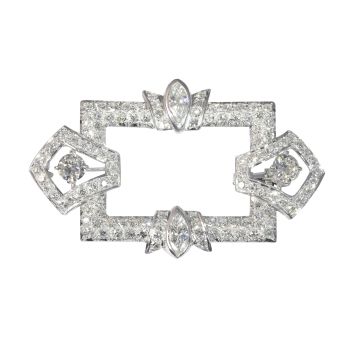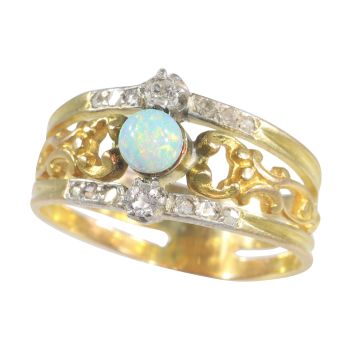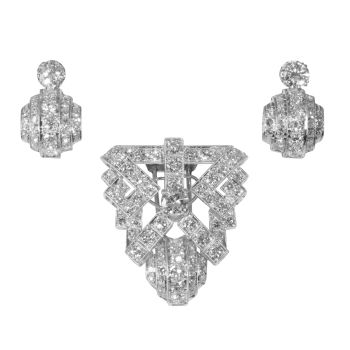Antieke manchetknopen Frans 18K geelgouden masker 1880
Onbekende Kunstenaar
Goud
€ 5.650
Adin Fine Antique Jewellery
- Over kunstwerk
These unique 18K yellow gold French Victorian cufflinks from 1890 depict four grinning portraits resembling characters from Ancient Greek comedy and tragedy theatre. Through a cable chain, one cufflink connects assumingly a Satyr with horns and pointyears to a devilish persona with pointed ears as well and fangs. As for the other cufflink, the portrait of a foolish old man with a moustache, a goatee and horns fit to impersonate Dionysos, the Greek god of wine, is hanging besides a feminine face withpointed ears resembling Medusa or a female worshipper of Dionysos.
With even every backside individually modelled and with the finest hinges on the back, these masculine jewels are a sample of pure French sophistication, which will assist you in any performance in this play without rehearsal that we call life.Antique jewelry object group: cufflinks
Condition: excellent condition
- (more info on our condition scale)
Country of origin: France
Style: Late-Victorian - Victorian decorative arts refers to the style of decorative arts during the Victorian era. The Victorian era is known for its eclectic revival and interpretation of historic styles and the introduction of cross-cultural influences from the middle east and Asia in furniture, fittings, and Interior decoration.
Victorian design is widely viewed as having indulged in a regrettable excess of ornament. The Arts and Crafts movement, the aesthetic movement, Anglo-Japanese style, and Art Nouveau style have their beginnings in the late Victorian era.
- See also: late-Victorianor more info on styles
Style specifics: Late Victorian / early Art Nouveau - The subject of this piece, although typical 19th Century, announces the coming of the Art Nouveau style.
Extra information: These cufflinks are a strong representation of the craftsmanship of the medallists of the Late Victorian era in France. Designers continued to use this technique of engraving medals extensively during the Art Nouveau period. The manufacturing of thistype of jewellery became so widely known and appreciated, that the makers deserved their own style division, called "the medallists".
Period: ca. 1880
- (events & facts of this era, poetry of this era, fashion of this era)
Source of inspiration: Mythology
Theme: Four comedy and tragedy masks (?)
Material: 18K yellow gold
- (more info on precious metals)
Hallmarks: The French control mark for 18K gold representing an eagle's head that was in use in France from about 1838.
- (more info on hallmarks)
Dimensions: each head approximately 1,77 cm (0,70 inch) x 1,17 cm (0,46 inch)
Weight: 11,40 gram (7,33 dwt)
Reference Nº: 16061-0012
Copyright photography: Adin, fine antique jewelry
- Over kunstenaar
Het kan voorkomen dat een kunstenaar of maker onbekend is.
Voor sommige werken is het niet te bepalen door wie het gemaakt is of dat het is gemaakt door (een groep) ambachtslieden. Voorbeelden zijn beelden uit de Oudheid, meubels, spiegels of handtekeningen die vaak niet duidelijk of leesbaar zijn. Maar ook sommige werken zijn helemaal niet gesigneerd.
Ook kunt u de volgende beschrijving vinden:
•"Toegeschreven aan …." waarschijnlijk een werk van de kunstenaar maar niet zeker of gedeeltelijk
•“Atelier van ….” of werkplaats van” een werk uitgevoerd in het atelier of atelier van de kunstenaar, eventueel onder zijn toezicht
•“Cirkel van ….” een werk uit de periode van de kunstenaar die zijn invloed laat zien, nauw verbonden met de kunstenaar maar niet noodzakelijkerwijs zijn leerling
•“Stijl van ….” of “Volger van ….” een werk uitgevoerd in de stijl van de kunstenaar, maar niet noodzakelijk door een leerling; kan eigentijds of bijna eigentijds zijn
•“Wijze van ….” een werk in de stijl van de kunstenaar maar van latere datum
•"Na …." een kopie (van welke datum dan ook) van een werk van de kunstenaar
•“Getekend…”, “Gedateerd….” of “Ingeschreven” dan is het werk gesigneerd/ gedateerd/ ingeschreven door de kunstenaar. De toevoeging van een vraagteken duidt op een element van twijfel
•"Met handtekening ...", "Met datum ...", "Met opschrift..." of “Draagt signatuur/datum/opschrift” dan is de handtekening/datum/opschrift toegevoegd door iemand anders dan de kunstenaar
Bent u geïnteresseerd om dit kunstwerk te kopen?
Artwork details
Related artworks
- 1 - 4 / 12
- 1 - 4 / 24
- 1 - 4 / 24
Marie-Jeanne van Hövell tot Westerflier
Contemplation 012006 - 2017
Prijs op aanvraagKoster Fine Art Gallery
1 - 4 / 24Ans Hemke-Kuilboer
Solitair diamanten oorstekers2000 - 2017
Prijs op aanvraagAns Hemke-Kuilboer Juwelier & Antiquair
Samuel Dejong
Anatomia Blue Heritage, Hercules Open2017 - 2019
Prijs op aanvraagVilla del Arte Galleries
 Gecureerd door
Gecureerd doorGallerease Magazine
Onbekende Kunstenaar
Retro ring in platina bezet met diamanten en een saffier1940 - 1950
Prijs op aanvraagLyppens Juweliers
1 - 4 / 24- 1 - 4 / 12

